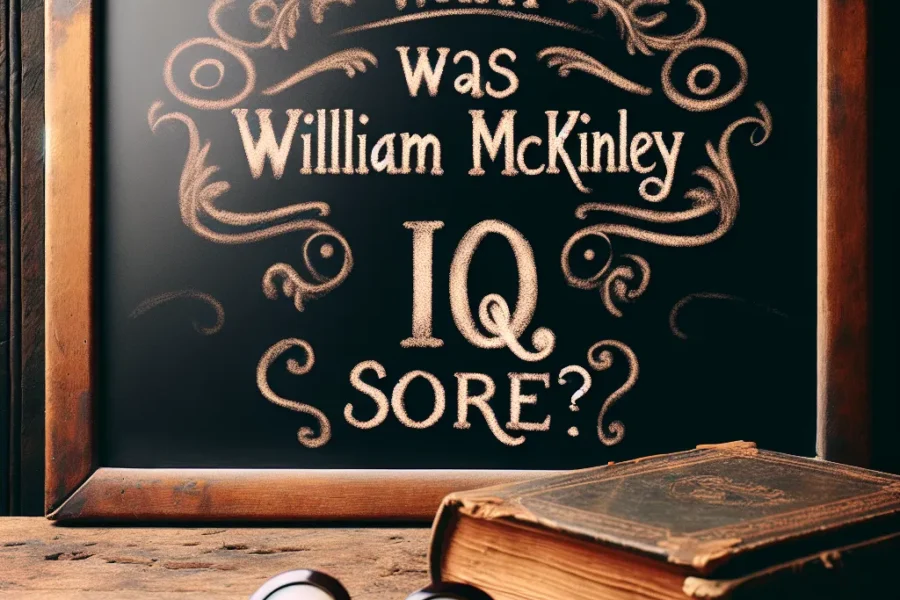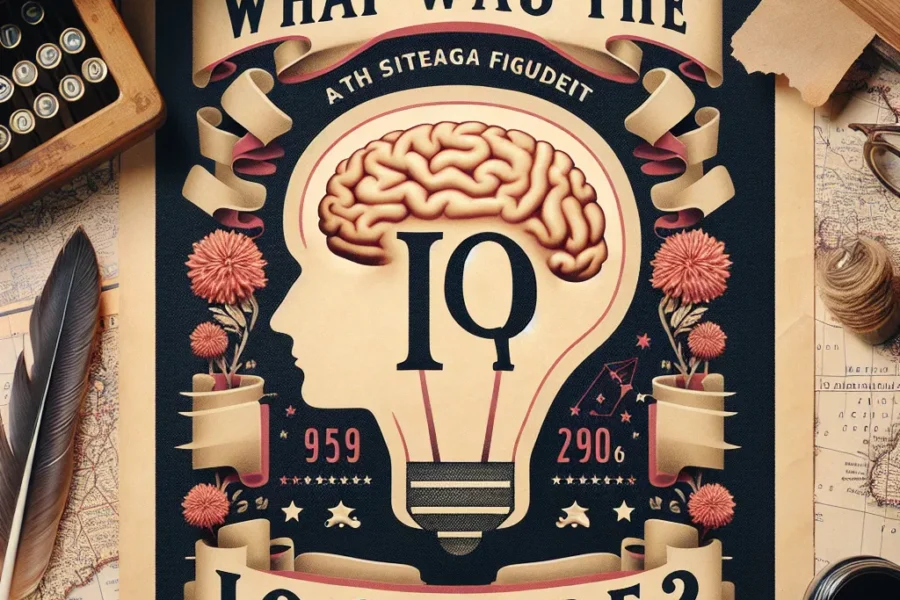Theodore Roosevelt, the 26th president of the United States, is a figure who commands respect and admiration in both American and global historical contexts. Not only was he a soldier, a statesman, and a Nobel Peace Prize laureate, but he was also an avid naturalist, author, and reformer. With such a diverse and accomplished life, it’s natural to wonder about his intellectual capabilities, sparking the question: What was Theodore Roosevelt’s IQ score?
If you are looking for legitimate IQ Tests which pass the entry bar for Mensa, see our IQ Tests.
Theodore Roosevelt was born on October 27, 1858, into a prominent New York family. His early years were plagued with illness; he suffered from severe asthma which often left him bedridden. Nonetheless, his insatiable curiosity and love for learning were evident from a young age. Contrary to the common misconceptions of the era about physical weakness correlating with intellectual frailty, Roosevelt’s mind was exceptionally sharp. He took to learning with an uncommonly voracious appetite, reading widely and diversely.
Roosevelt’s intellectual prowess was displayed through his academic achievements. He entered Harvard University at the age of 18 and graduated magna cum laude, a testament to his intellectual capabilities. While at Harvard, he studied a range of subjects, from biology to political science, reflecting his wide-ranging interests. Furthermore, Roosevelt was well-known for his prolific reading habits. Reports suggest he read one to three books a day, even while serving as president. This remarkable feat is indicative of a level of comprehension and analytical skill that far exceeds the average.
But let’s circle back to the central question: What was Theodore Roosevelt’s IQ score? The concept of IQ, or Intelligence Quotient, was not formalized until the early 20th century, several years after Roosevelt’s formative years. Therefore, he never took a standardized IQ test. However, various historians and psychologists have made educated estimates based on his academic, professional, and personal achievements.
Reputable sources suggest that Theodore Roosevelt’s IQ score was likely in the range of 145 to 160, placing him comfortably within the category of “genius” intelligence. Here’s a closer look at how this estimate is derived.
First, we must consider Roosevelt’s linguistic and literary achievements. Throughout his life, he authored over 35 books on a wide range of subjects, including history, frontier life, and his own autobiography. His ability to produce such a vast body of well-received literature speaks volumes about his intellectual capabilities. Additionally, Roosevelt was a polyglot who had a working knowledge of several languages, including French, German, and Italian. Mastery of multiple languages is often a strong indicator of high intelligence.
Second, let’s examine Roosevelt’s problem-solving and leadership skills. His tenure as president was marked by a series of progressive reforms that required not just political acumen but also deep intellectual engagement. The Square Deal, for example, was his platform for domestic policy, focusing on three major ideas: conservation of natural resources, control of corporations, and consumer protection. These reforms required Roosevelt to navigate complex political terrains, balancing diverse interests and forging policy through a reasoned, evidence-based approach.
Third, Roosevelt’s contributions to scientific discourse highlight his intellectual depth. As an enthusiastic naturalist from his youth, he made significant contributions to the field by funding and participating in various expeditions. His scientific approach to collecting and cataloging specimens—many of which he donated to the Smithsonian Institution—demonstrated his methodical and analytical mindset, traits commonly associated with high IQ individuals.
Furthermore, Roosevelt’s debate and oratory skills were nothing short of extraordinary. His public speeches were characterized by their vigor, clarity, and intellectual depth. These abilities required not only a strong grasp of language but also the capacity to think critically and persuasively, attributes that are consistent with higher intelligence levels.
It’s also worth noting that IQ scores alone cannot encapsulate the multi-faceted nature of intelligence. Roosevelt’s emotional intelligence—his ability to persevere through personal tragedy, navigate the complexities of political life, and inspire a nation—adds layers to our understanding of his intellectual breadth.
In assessing Roosevelt’s intelligence, one should also consider his pioneering role in conservation. He was instrumental in the establishment of the United States Forest Service and signed into law the creation of five national parks, 18 national monuments, and 150 national forests. His foresight and understanding of environmental conservation underscore a future-oriented intellect that recognized the importance of preserving natural resources for subsequent generations.
Roosevelt’s achievements in diplomacy further exemplify his intellectual capacity. His role in mediating the end of the Russo-Japanese War earned him the Nobel Peace Prize in 1906, making him the first sitting president of the United States to receive this honor. This achievement required not just diplomatic skill but also a profound understanding of international relations and strategic foresight.
His commitment to physical fitness, despite his chronic asthma, also speaks to his discipline and mental toughness. Roosevelt believed in the importance of a sound mind in a sound body and lived this philosophy to the fullest, participating in strenuous activities like boxing, horseback riding, and exploring the wilderness. This holistic approach to life is often characteristic of individuals with high intelligence, who recognize the interconnectedness of physical and mental well-being.
In conclusion, while we may never have a definitive IQ score for Theodore Roosevelt, his life’s work offers substantial evidence to suggest that his intellectual capabilities were extraordinary. From his academic achievements and literary contributions to his leadership skills and scientific endeavors, Roosevelt’s legacy is a testament to his remarkable intellect. Even though formal IQ testing was not available during his time, an estimated IQ range of 145 to 160 seems both reasonable and justified based on his multifaceted accomplishments.
If you wish to explore more about intelligence measurement or are looking for legitimate IQ Tests that meet the entry criteria for Mensa, see our IQ Tests.



Leave a Comment